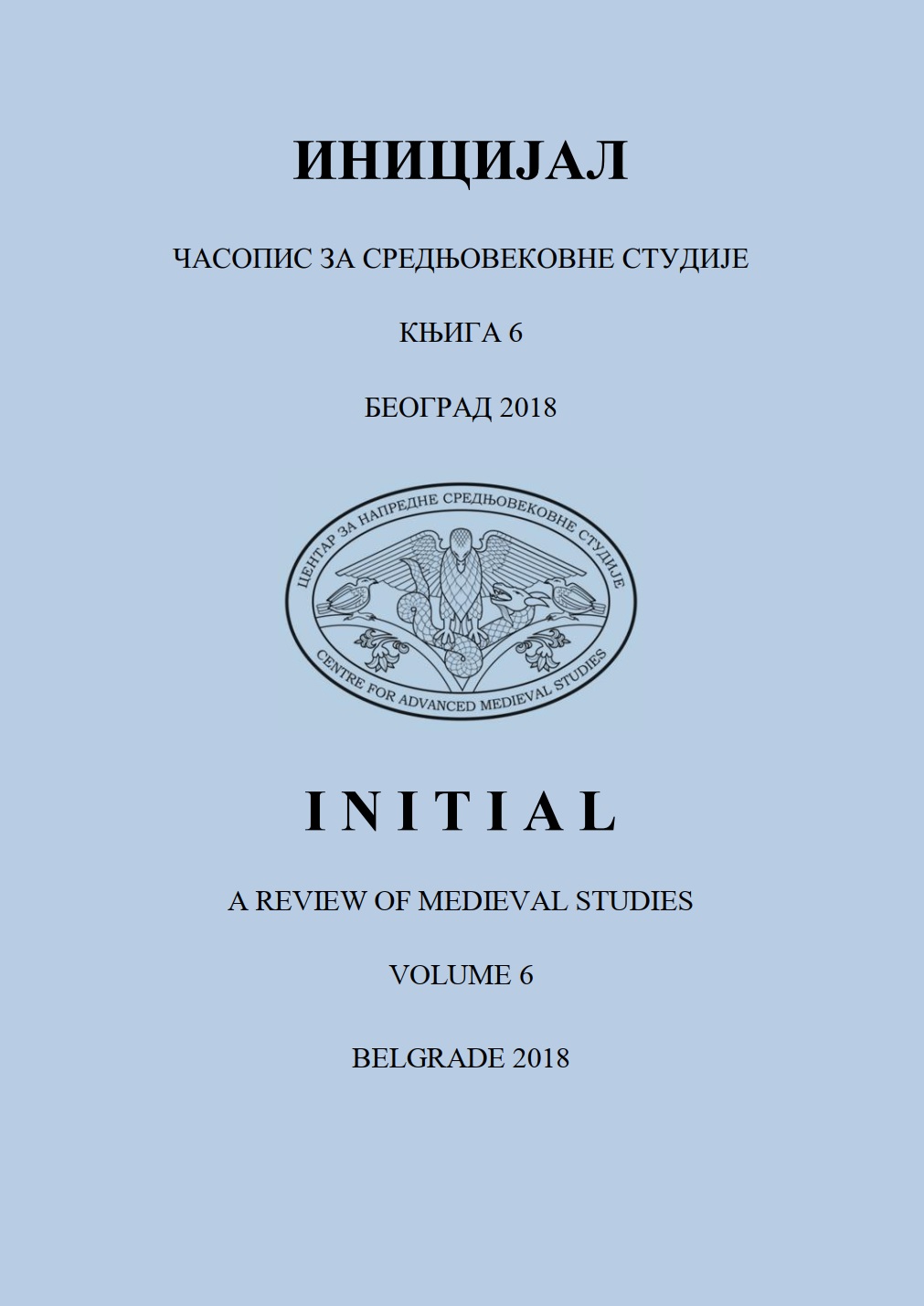Pismo firentinske vlade kralju Tvrtku Kotromaniću iz aprila 1390. godine. Prilog pitanju bosanske vlasti u Dalmaciji
The Letter of the Florentine Government to King Tvrtko Kotromanić from April 1390. A Contribution to the Issue of Bosnian Rule in Dalmatia
Author(s): Emir O. FilipovićSubject(s): History, Middle Ages, 13th to 14th Centuries
Published by: Центар за напредне средњовековне студије
Keywords: Bosnia; Florence; Korčula; Brač; Hvar; Dalmatia; king Stefan Tvrtko; Luca del Pecchia (de Gallis); king Ladislaus of Naples
Summary/Abstract: The collection Missive della prima Cancelleria in the State Archives of Florence keeps a copy of a letter sent by the Florentine government to Bosnian king Tvrtko in April of 1390. Even though some documents from this collection have previously been published, the mentioned letter has escaped the attention of researchers. The source claims that the Bosnian King named Florentine citizen Luke, son of John de Gallis, as count of the islands of Korčula, Hvar and Brač, and the government praises and recommends their fellow citizen, placing itself at the King’s disposal. This paper presents a critical edition and translation of the letter along with a commentary which particularly focuses on the person and activities of the mentioned Luke and his connections with the Bosnian and Croatian supporters ofKing Ladislas of Naples. On the basis of the available and analysed evidence it seems that the connections that Luca de Gallis had with the Angevin court in Naples, or with the Horvati and Vukčić brothers, were crucial for his entrance into the orbit of the Bosnian King and potential acceptance of comital authority on the islands of Brač, Hvar and Korčula. As a very mobile merchant with outstanding personal abilities, Luca had a remarkable political career in Florence where he performed numerous diplomatic missions for his homeland, but also for the Angevins of Naples. His basic political and commercial affairs were connected to the area of the Kingdom of Hungary where he managed to accumulate great personal wealth by trading various luxury items between the coasts of the Adriatic Sea. In that way he came into contact with numerous influential individuals and circles who then opened for him other business opportunities. Luca obviously skilfully used his reputation, great personal fortune, as well as connections with political potentates to further his business interests. He probably used his own money to support the ambitions of certain nobles or rulers and he financed their great political projects or enterprises. Wishing to repay and reward him for his loyalty, they recompensed him by giving him offices, estates or titles, and his case is a typical example of the connection between trade and politics, money and power, and an indicator of what kinds of possibilities for advancement stood at the disposal of capable businessmen during the late Middle Ages. Thus the appearance of Luca de Gallis in potential combinations and intentions of the Bosnian King towards Dalmatia allows us, at least partially, to gain an insight into the way that King Tvrtko’s Dalmatian policy functioned. Namely, it is well known that for the acquisition of great territories in Croatia and Dalmatia, the Bosnian King had to employ the maximum of his resources and that in this process he engaged the maximum of his potential. Therefore, he had to approach the extending and consolidating of his authority in Dalmatia rationally and rely, wherever possible, on locals or foreigners who knew the situation in the seaside better, were better aware of the political circumstances, and had at their disposal money and an established network of contacts. Consequently, there must have been a strong reason why Luca de Gallis was named as the count of the islands and this was probably a classic business transaction whose outcome was conditioned by the basic principle of supply and demand. King Tvrtko needed able men with important financial and political capital, as well as connections, and along with all of that, Luka also enjoyed the confidence of the court in Naples. So it can be said that apart from the expressed and proven skills in trade and diplomacy, King Tvrtko also employed him due to his political orientation which legitimated him in the time of sharp polarisation of opposing sides in the Hungarian Kingdom. The gathered and presented facts introduce a new character in the story about the period of Bosnian administration in Dalmatia, and his appearance in this context sheds some more light on the complex political relations during the Hungarian succession crisis which the Bosnian ruler attempted to use for his own gain, expanding the borders of the Bosnian Kingdom and gaining control of the rich revenues of the coastal trade. This also clarifies the position of Luca de Gallis, whose impressive biography is supplemented with connections to the Bosnian court, the title of comes and claims of authority over the islands of Brač, Hvar and Korčula. Even though this famous Florentine merchant is not an unknown historiographical quantity anymore, there are still chances that his role in the “Adriatic project” of King Tvrtko could be additionally enlightened by the discovery of new information in some of the archival institutions in Italy, Croatia or Hungary.
Journal: Иницијал. Часопис за средњовековне студије
- Issue Year: 2018
- Issue No: 6
- Page Range: 139-158
- Page Count: 20
- Language: Bosnian

